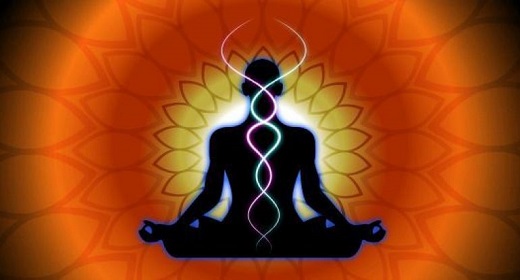by Lena Firestone: Has anyone ever told you that you are too sensitive or too emotional?
Do you feel drained when you spend time around certain people? Can you tell when people aren’t telling you the whole truth? Do you feel anxious in crowds? When a friend of yours is feeling particularly happy or distressed do you find yourself feeling these same emotions? If your answers to these questions are yes, you might belong to a special group of people known as empaths.
What are Empaths?
Empaths are highly sensitive individuals, who have a keen ability to sense what people around them are thinking and feeling. Psychologists may use the term empath to describe a person that experiences a great deal of empathy, often to the point of taking on the pain of others at their own expense. However, the term empath can also be used as a spiritual term, describing an individual with special, psychic abilities to sense the emotions and energies of others. This particular article will focus on the psychological aspects of being an empath.
There are many benefits of being an empath. On the bright side, empaths tend to be excellent friends. They are superb listeners. They consistently show up for friends in times of need. They are big-hearted and generous. Empaths also tend to be highly intuitive and emotionally intelligent.
However, some of the very qualities that make empaths such fantastic friends can be hard on the empaths themselves. Because empaths quite literally feel what their friends are going through, they can become overwhelmed by painful emotions, such as anxiety or anger. Empaths have a tendency to take on the problems of others as their own. It is often difficult for them to set boundaries for themselves and say no, even when too much is being asked of them.
Additionally, it is common for empaths to feel drained after spending time around people. Empaths are usually introverts, and they require a certain amount of alone time in order to recharge. A study from 2011 suggests there may be a link between highly empathic individuals and social anxiety. Crowds can feel particularly overwhelming to empaths, who are often highly sensitive to certain noises and incessant chatter. They often feel their best when they are surrounded by nature.
Am I An Empath?
Dr. Judith Orloff, author of The Empath’s Survival Guide, offers this short quiz to evaluate whether or not you are an empath:
Ask yourself:
- Have I been labeled as “too emotional” or overly sensitive?
- If a friend is distraught, do I start feeling it too?
- Are my feelings easily hurt?
- Am I emotionally drained by crowds, require time alone to revive?
- Do my nerves get frayed by noise, smells, or excessive talk?
- Do I prefer taking my own car places so that I can leave when I please?
- Do I overeat to cope with emotional stress?
- Am I afraid of becoming engulfed by intimate relationships?
According to Dr. Orloff, “If you answer ‘yes’ to 1-3 of these questions, you’re at least part empath. Responding ‘yes’ to more than 3 indicates that you’ve found your emotional type.”
“Recognizing that you’re an empath is the first step in taking charge of your emotions instead of constantly drowning in them,” Dr. Orloff says. Once you begin to understand your empathic nature, you can learn to take better care of yourself emotionally.
How to Manage Your Empathy Without Getting Drained
Set Healthy Boundaries
Being naturally caring and concerned for others, empaths have a hard time saying “no.” This can lead to problems as you overcommit and drain yourself emotionally. Dr. Orloff suggests, “Control how much time you spend listening to stressful people, and learn to say ‘no.’ Set clear limits and boundaries with people, nicely cutting them off at the pass if they get critical or mean. Remember, ‘no’ is a complete sentence.”
Practice Mindfulness
Because empaths tend to get caught up in what is going on around them, it is particularly important for them to set aside time to tune in. Practicing mindfulness can help you reconnect to yourself. Focusing on your breath, for insistence, quiets the mind and centers you in your body. It can be helpful in meditation to practice “non-identification” with others, try to see yourself and your emotions as separate from anyone else’s.
Ignore Your Inner Critic
The Critical Inner Voice is like a nasty coach that lives inside our heads, waiting for any opportunity to criticize us. Empaths, being sensitive, are vulnerable to these self-critical thoughts. They may think things like, “Why do you feel so much all the time? What’s wrong with you?” or “You’re just too sensitive.” However, it is important not to believe these self-attacks or act on your inner critic’s bad advice. You can read about how to overcome your inner critic here.
Practice Self-Compassion
While it is easy for empaths to feel compassion for others, it is often difficult for them to feel compassion for themselves. Self-compassion is the simple (yet challenging) practice of treating yourself like a friend. It is called a practice because it is something that you get better at over time. According to Dr. Kristen Neff, there are three components to practicing self-compassion:
1) Acknowledge and notice your suffering.
2) Be kind and caring in response to suffering.
3) Remember that imperfection is part of the human experience and something we all share.
You can find self-compassion exercises on Dr. Kristen Neff’s website.
Spend Time in Nature
Nature has wonderful healing effects for all humans, but particularly for empaths. Essayist John Burroughs said, “I go to nature to be soothed and healed, and to have my senses put in order.” Because empaths are highly sensitive to the people (as well as noises and environments) around them, time in nature is the optimal way for them to relax and recharge. Whether you live somewhere that allows you to walk on the beach, hike through the woods or sit in a park, it is important to make time to rejuvenate in a beautiful, natural setting, especially when you are feeling overwhelmed or emotionally depleted.
At the end of the day, it is important to recognize both the blessings and challenges of being an empath. In a world where so many people struggle to identify and express emotions, empathy can seem like a superpower. Embrace yours!

















































